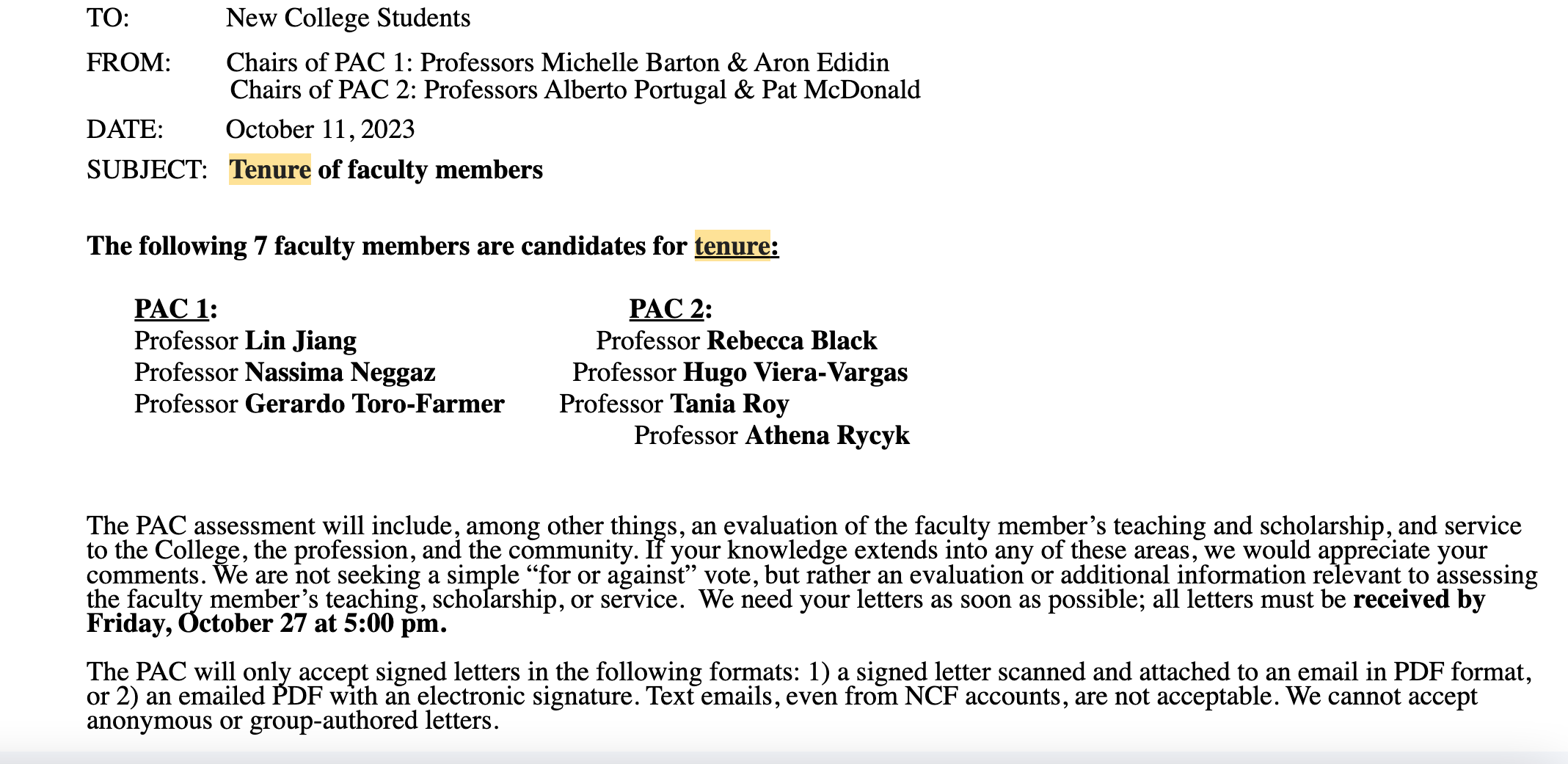It’s that time of year where emails with the subject “Call for Letters” begin to fill up students’ inboxes. Most students ignore them, mark as read and/or delete them. However, these requests are important and here’s why.
Tenure is awarded to professors in order to secure their position by ensuring that they cannot be fired by their employers without cause. Full-time faculty enter positions that are “tenure-earning,” meaning that they eventually can become candidates for tenure. Typically at New College, employees become candidates for tenure during their sixth year of employment; however it is possible for candidacy to be announced earlier. Faculty who become candidates for tenure before their sixth year often have experience at another institution and/or very strong scholarship and teaching records.. If denied, a faculty member can announce candidacy for the next year. However, faculty who are denied tenure during their sixth year of employment are given a year to search for a new position at a different institution and then they must leave.
The criteria for tenure accreditation are listed in the Faculty Handbook. Data regarding tenure are compiled into a file that includes evaluations from Division Chairs, student course evaluations, reviews by outside experts in the candidate’s field and copies of the candidate’s publications. Responses to the call for letters sent to students and faculty are also included in the tenure file. A call for letters is a chance for the community to share their experiences with faculty up for tenure and are, therefore, very important. The contents of this file help to decide whether or not a faculty member will be awarded tenure.
The call for letters is used to help determine whether or not a faculty member receives a promotion as well. This is stated in the “Call for Letters” email.
This file is first reviewed by the faculty member’s Division and Division members will vote to recommend whether or not the person should be awarded tenure. This decision moves on to the Provost Advisory Committee (PAC), who will study the materials, meet with the candidate and make a recommendation to the campus president. Finally, the Board of Trustees (BOT) will be presented with a recommendation and they will decide whether to award or deny tenure.
The PAC is divided into PAC 1 and PAC 2 in order to divide the work of sorting through the voluminous faculty files. This semester, PAC 1 will be reviewing the tenure files for Professors Lin Jiang, Nassima Neggaz and Gerardo Toro-Farmer. PAC 2 will review the files for Professors Rebecca Black, Hugo Viere-Vargas, Tania Roy and Athena Rycyk.
It is worth highlighting that the PAC will only accept letters in the following formats: “1) a signed letter scanned and attached to an email in PDF format, or 2) an emailed PDF with an electronic signature.” These letters should be sent to the PAC and will not be accepted after Oct. 27 at 5:00 p.m.

